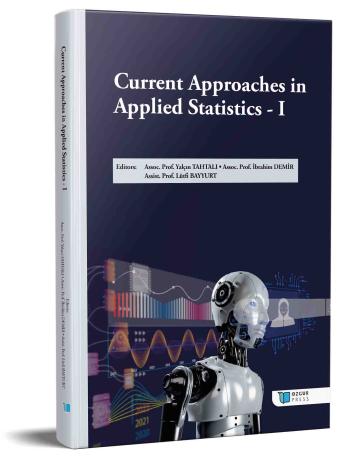
Structural and Statistical Analysis of Finite Mixture Models Based on q-Calculus
Şu kitabın bölümü:
Tahtalı,
Y.
&
Demir,
İ.
&
Bayyurt,
L.
(eds.)
2025.
Current Approaches in Applied Statistics I.
Özet
The foundations of -analysis date back to the 1740s, when Euler introduced the theory of partitions, also referred to as additive analytic number theory. Over the years, the discovery of -calculus applications in fields such as operator theory, combinatory, probability theory, and many others has sparked tremendous interest in this mathematical framework.
Mixture distributions are probabilistic models in which a data set is assumed to originate from multiple underlying distributions, each contributing with a certain probability. These distributions are commonly used to model complex data structures more accurately.
This paper introduces -finite mixture models as a novel extension of the classical finite mixture family, motivated by recent progress in -calculus and generalized probability distributions. By incorporating a deformation parameter , the proposed mixture models offer enhanced modeling flexibility for a variety of stochastic phenomena. The fundamental distributional and statistical properties of the suggested -mixture models are systematically are explored.

